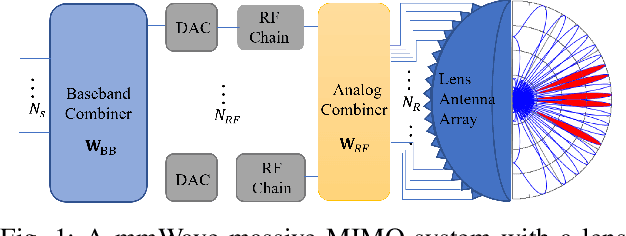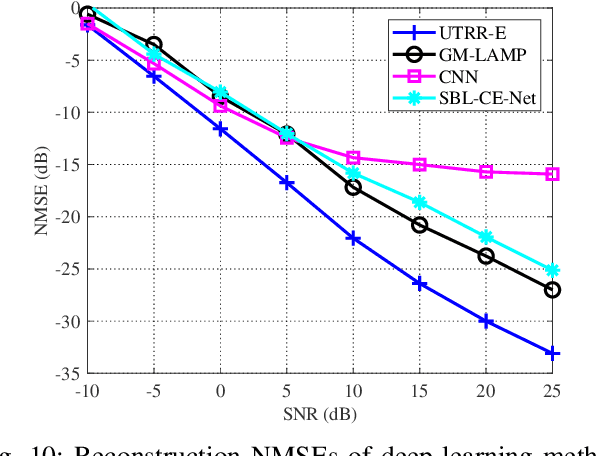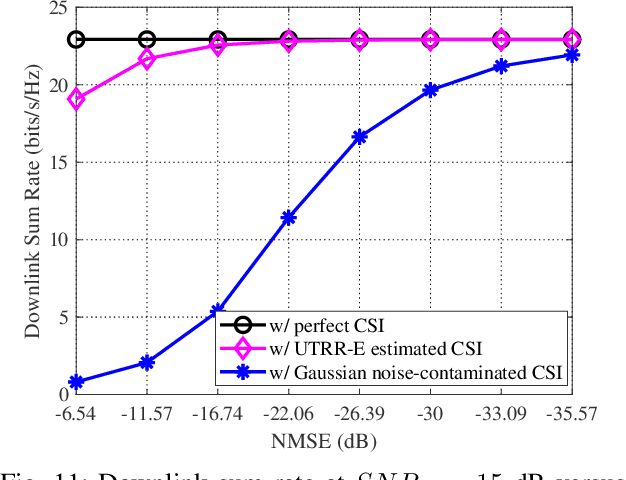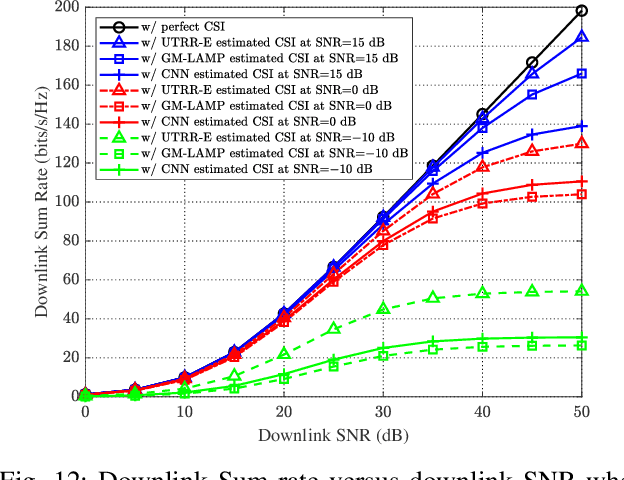Learned Trimmed-Ridge Regression for Channel Estimation in Millimeter-Wave Massive MIMO
Paper and Code
Aug 06, 2024



Channel estimation poses significant challenges in millimeter-wave massive multiple-input multiple-output systems, especially when the base station has fewer radio-frequency chains than antennas. To address this challenge, one promising solution exploits the beamspace channel sparsity to reconstruct full-dimensional channels from incomplete measurements. This paper presents a model-based deep learning method to reconstruct sparse, as well as approximately sparse, vectors fast and accurately. To implement this method, we propose a trimmed-ridge regression that transforms the sparse-reconstruction problem into a least-squares problem regularized by a nonconvex penalty term, and then derive an iterative solution. We then unfold the iterations into a deep network that can be implemented in online applications to realize real-time computations. To this end, an unfolded trimmed-ridge regression model is constructed using a structural configuration to reduce computational complexity and a model ensemble strategy to improve accuracy. Compared with other state-of-the-art deep learning models, the proposed learning scheme achieves better accuracy and supports higher downlink sum rates.
 Add to Chrome
Add to Chrome Add to Firefox
Add to Firefox Add to Edge
Add to Edge